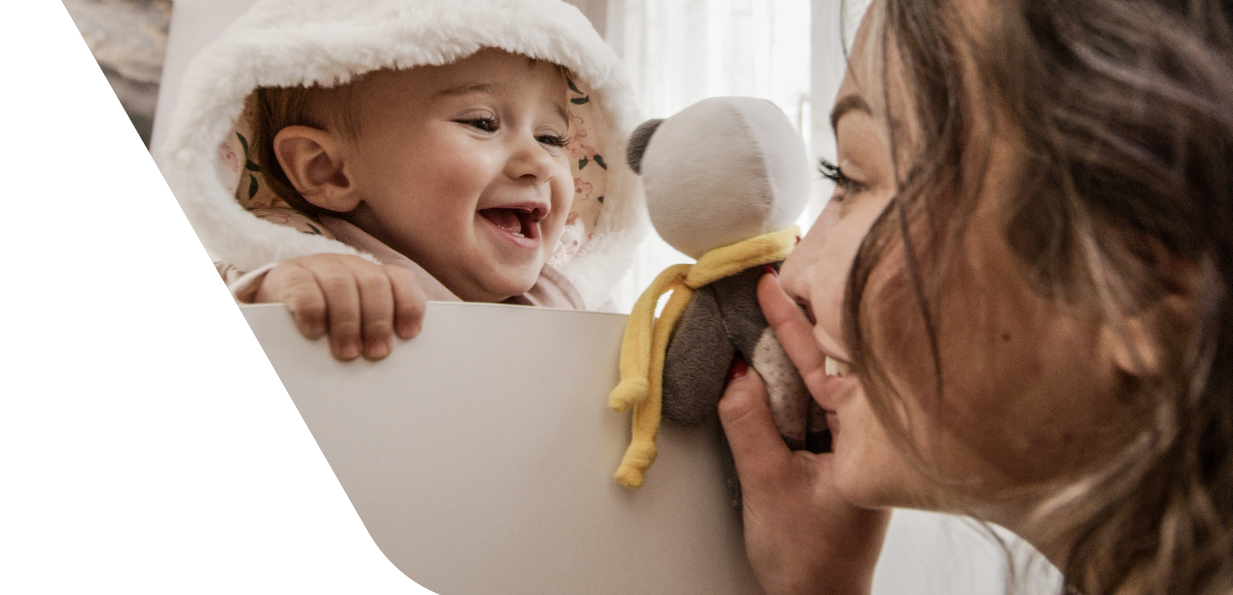By now your toddler is probably walking and talking. Although he hasn’t fully mastered either, the extent of his ability is amazing, considering that just recently this little person could only lie on his back and communicate by wailing. You can continue to fuel his progress with good nutrition, parent-child interaction, and lots of encouragement.
Here are the developments you’re likely to see about this time in your young toddler.
Cognitive
First he realizes that everything in the world has a name. Then your toddler wants to learn these names. He may point and say “Dat?” over and over again when asking you to identify items for him. Even if he doesn’t repeat the new words you share, his brain is filing them away. Your toddler is learning the names of body parts, too, and can point to them when asked.
Motor
Almost all toddlers are walking by now, if not trying to run way ahead of Mom. New walkers are also up to the challenge of push- and pull-toys—they’re a way to work on the special skill of maintaining balance with both the legs and the arms. Another favourite activity is climbing—from hills and play equipment to (watch out) furniture.
Communication
Where your child is with language skills is tough to predict—language development varies widely at this stage. By 20 months, some use three or four words while others use 500 (about 160 to 170 is average). Once a toddler learns about 50 words, he tends to add more at a faster clip. Around 18 months is the magic age for language explosion because there’s a corresponding spurt in brain development.
Social
During this time, some less-than-pleasant behaviours peak. One is the tantrum, which rears its ugly head when your child is thwarted either by you or his own still-limited abilities. A change in routine, like too little sleep or a missed snack, can further upset his emotions. Tantrums are normal behaviours for toddlers. These outbursts occur because they are struggling with complex social concepts like impulse control and rules at the time they’re trying to figure out their own emotions. Some toddlers still grapple with stranger anxiety at this age as well. One minute they’re pushing away from you and the limits you set, and the next minute they’re clinging to you and seeking your attention. In both challenging situations, you can help your child best by remembering that these phases are just that and will pass and by remaining calm.






